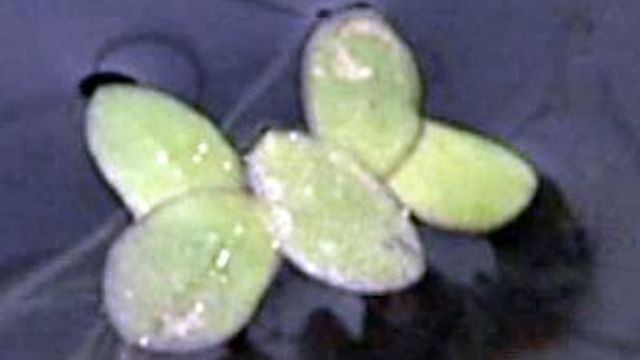Local News
Pond plant could clean up hog lagoons, create energy
Duckweed could be the key to cleaning up the approximately 3,000 hog lagoons in the state while also providing an answer to the global energy crisis.
Posted — UpdatedYour browser doesn't support HTML5 video.
North Carolina State University researchers say an aquatic plant called duckweed could be the key to cleaning up the approximately 3,000 hog lagoons in the state while also providing an answer to the global energy crisis.
Duckweed eats up harmful nutrients that waste produces and prevents it from being released into the environment, said Dr. Anne-Marie Stomp, one of two researchers studying the plant at a hog farm in Zebulon.
Your browser doesn't support HTML5 video.
The duckweed then produces starch – the main ingredient for the? fuel ethanol -- up to six times as much per acre as corn.
Dr. Jay Cheng said that could mean faster and cheaper production and could help settle controversy over corn-based ethanol, which has ethanol manufacturers and the food industry competing.
"You don't have to put food consumption in competition with industrial uses for that same amount of carbon-based material," Stomp said. "You can have two sets of crops so everybody can eat at a good price and everybody can drive their cars at a good price."
Cheng said the potential goes beyond the hog farm.
"Duckweed can not only grow with nutrient from swine wastewater, but it can grow on other wastewater, too, like municipal wastewater and dairy wastewater," he said.
The North Carolina Biofuels Center is funding the research and researchers say they will have meaningful data by the end of the year on whether this will be economically feasible for farmers.
It said that is critical since the type of work is driven by money, not science.
• Credits
Copyright 2024 by Capitol Broadcasting Company. All rights reserved. This material may not be published, broadcast, rewritten or redistributed.
